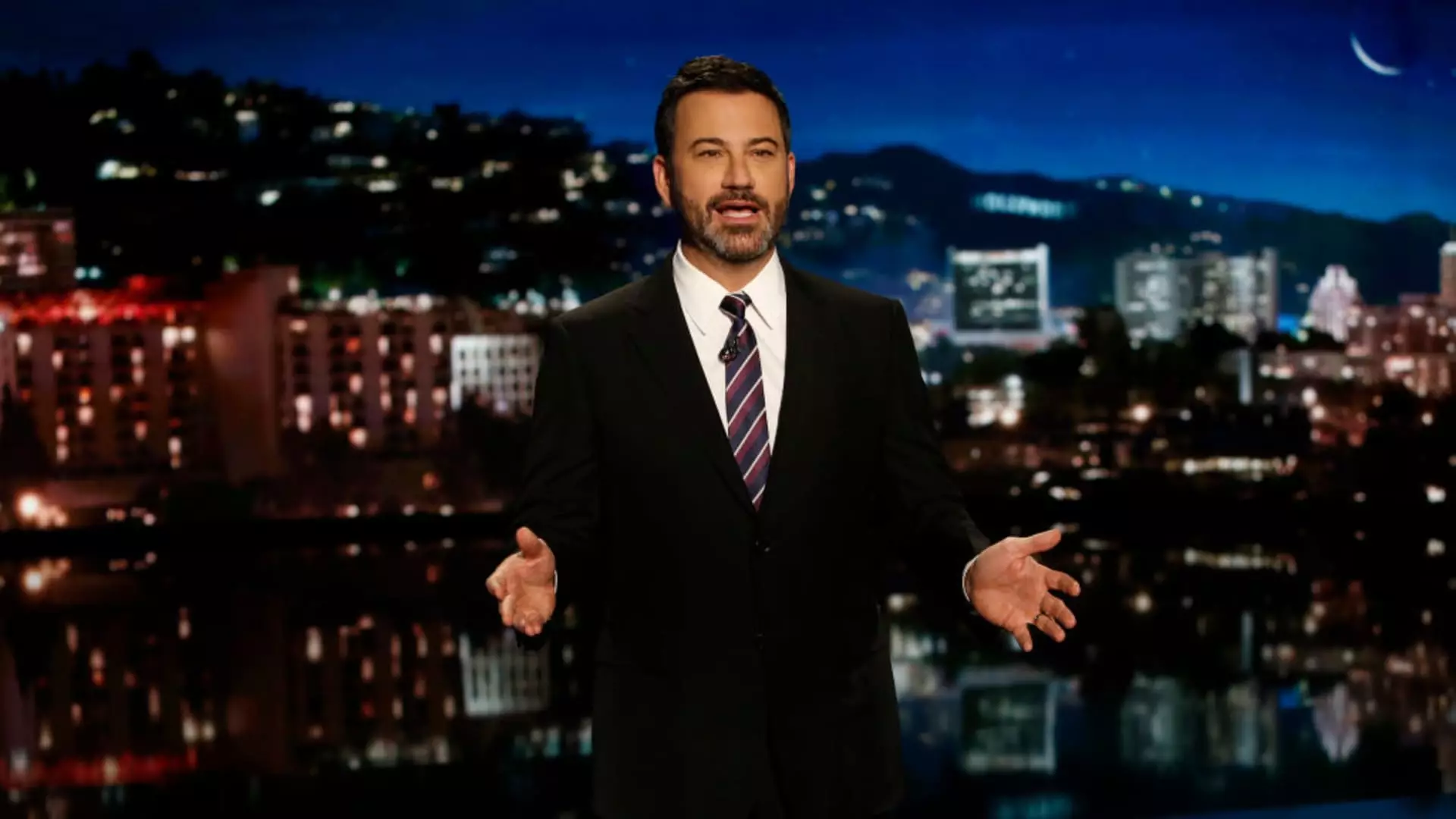In recent weeks, the suspension of Jimmy Kimmel’s long-standing television show has morphed from a routine programming interruption into a controversial battleground for free speech and political influence. This seemingly isolated incident reveals troubling echoes of how the consolidation of corporate power, political pressures, and government overreach threaten the foundational freedoms that underpin a healthy democracy. While some may dismiss this as a trivial matter of television entertainment, it is actually an alarming indicator of the creeping authoritarianism that could undermine the pluralism and open debate crucial for societal progress.
The decision to pull Kimmel’s show appears to be rooted not in an objective evaluation of its content but in external pressures from powerful political figures and regulatory agencies. The fact that a late-night host’s speech—an arguably protected form of expression—could invoke such severe consequences illustrates how fragile the boundaries of free expression currently are. When the Federal Communications Commission (FCC), under a leadership appointed by a government with clear partisan leanings, insinuates that media content can influence public perception and warrants censorship, the democratic ideal of an uninhibited press is under siege. This is not simply about a joke; it’s about whether our society values open discourse enough to withstand the pressures of political censorship and corporate interests.
The alarming aspect of this situation is the misuse of regulatory authority to silence dissenting voices, often under the guise of protecting public order. The pushback from conservative entities claiming that Kimmel’s comments “misled” the public underscores a dangerous trend of weaponizing national security concerns to justify suppressing critical viewpoints. This line of reasoning erodes the sanctity of the First Amendment, equating speech with perceived threats rather than safeguarding constitutional rights. Consequently, what emerges is a climate where politicians and regulatory bodies wield power to discipline or suppress unprofitable or inconvenient narratives, ultimately threatening the pluralism necessary for democratic health.
The Power Dynamics: Corporations, Politics, and the Suppression of Dissent
The role of corporate actors in shaping media narratives becomes increasingly problematic when they align with political forces to enforce silencing. Broadcasters like Nexstar and Sinclair, responding rapidly to political pressure, preempted Kimmel’s show—an unequivocal act of capitulation to powerful vested interests. This ripple effect reveals a troubling reality: that in a corporate-dominated media landscape, business interests and political agendas are often intertwined, leaving little space for independent or dissenting voices to flourish.
This scenario exposes a fundamental flaw at the heart of liberal democracy—when economic and political elites prioritize image control over free inquiry, the space for civil debate shrinks. The cozy relationship between Hollywood, corporate broadcasters, and political actors creates an echo chamber that often favors the status quo, discouraging uncomfortable but necessary conversations about accountability and societal flaws. The swift reactions to Kimmel’s comments demonstrate how sensitive the current climate is to perceived ideological threats, with consequences that threaten to set precedents for future censorship.
The broader implication is that the intimidation tactics used here—ranging from regulatory threats to aggressive corporate preemptions—signify a shift towards a more authoritarian media environment. When creators face repercussions for offering criticism or satire, the entire concept of a free press diminishes. The risk is not just that one show gets suspended, but that the atmosphere becomes inhospitable to open debate, a core principle for any society claiming to uphold liberal values.
The Political Spectrum and Its Disservice to Democratic Pluralism
Ironically, the reactions to Kimmel’s suspension span the political spectrum, illustrating how polarized ideology often distorts fundamental freedoms. Conservative figures wield the incident to resurrect charges of “cancel culture,” framing suppression as a liberal attack against free speech. Meanwhile, liberals who defend Kimmel highlight concerns about government overreach and the sanctity of free expression. This polarization diverts focus away from the core issue: whether principles of transparency, accountability, and free debate are being compromised in pursuit of political gains.
In centrist liberalism, there is an opportunity to draw a nuanced line, advocating for accountability without sacrificing principles of free speech. Defenders such as former Disney CEO Michael Eisner and Congressman Alexandria Ocasio-Cortez emphasize that the exchanges happening now threaten the very fabric of democratic discourse. Their voices serve as reminders that protecting free speech does not mean uncritically tolerating harmful rhetoric; rather, it demands upholding a space where diverse ideas can clash. When powerful actors weaponize regulatory threats to silence dissent, the resulting environment functions less as a free marketplace of ideas and more as a controlled narrative space, which endangers the democratic process.
The episode serves as a stark warning: that in an age of rapidly shifting information landscapes and political volatility, the safeguard of free speech requires vigilance from all sides of the ideological spectrum. When the majority of societal debates are influenced or curtailed by external pressures—whether from corporate interests, government agencies, or ideological factions—the central tenet of liberal democracy—free and open exchange—is fundamentally compromised. As citizens and defenders of democracy, it is imperative to scrutinize such incidents critically and resist the normalization of censorship under the guise of protecting fragile social order.


Leave a Reply